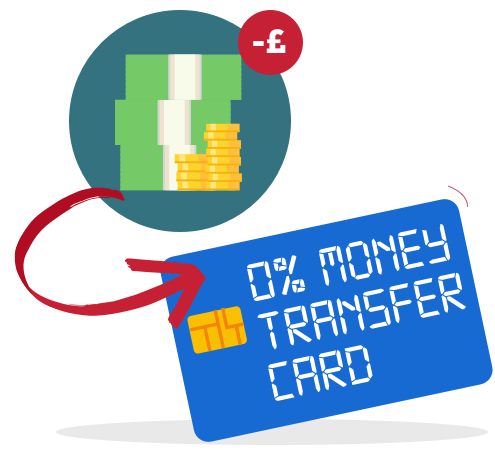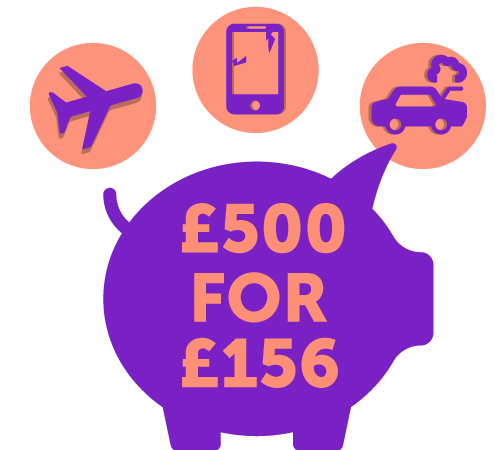Martin's 'bank accounts in turmoil' briefing
0% Covid overdrafts ending, 40% overdrafts returning. No free-cash switches, Santander 123 cashback slashed
12 urgent banking need-to-knows to protect your pocket
 Current accounts are the cornerstones of our personal finances - the day-to-day accounts we need to trust to hold our money, let us make transactions and pay bills. Yet we've seen a transition that leaves the market nearly unrecognisable from six months ago.
Current accounts are the cornerstones of our personal finances - the day-to-day accounts we need to trust to hold our money, let us make transactions and pay bills. Yet we've seen a transition that leaves the market nearly unrecognisable from six months ago.
First, 40% overdrafts were introduced, but not long after, the pandemic hit and huge protections were put in place. That also killed all the big 'free cash' switching incentives. Now those protections are dwindling, but the incentives aren't returning. So whether you're in credit or overdrawn, things are getting tougher. Here are my need-to-knows to max your cash...
1) Warning. Automatic 0% coronavirus overdrafts are ending - now it's don't ask, don't get. As the pandemic started, the regulator, the FCA, instructed banks to give anyone struggling the first £500 of their overdraft interest-free. For ease, many banks just gave automatic £500+ 0% overdrafts to everyone.
 That rule has recently been extended, and is still in place until 31 Oct. Yet five major banks and building societies have now changed policies from auto 0% overdrafts, to only helping those struggling due to coronavirus who ask for assistance. So if that's you - ask.
That rule has recently been extended, and is still in place until 31 Oct. Yet five major banks and building societies have now changed policies from auto 0% overdrafts, to only helping those struggling due to coronavirus who ask for assistance. So if that's you - ask.
See our bank-by-bank coronavirus overdraft help to see if your bank's making the change, and how to request to keep your 0% overdraft on.
2) First Santander 123 slashed interest, now Santander 123 Lite's doubling its fee - time to ditch? In Jan, it was announced the once-great Santander 123 current account would drop its interest from 1.5% to 1%. I said then it was a dead duck - though that rate doesn't look too awful now - but from Mon, it's dropping again to 0.6%, which is paltry interest that makes it far from worth the £5/mth fee - see our ditch Santander 123? guide.
One option for 123 customers was to move money to top savings and drop down to the Santander 123 Lite* account. The 123 Lite account pays no interest, has a much lower fee, but still gives the same cashback. Yet this week, we learnt that from 27 Oct it changes too...
- The 123 Lite account fee is doubling. From £1/mth to £2/mth.
- Phone, TV & broadband cashback cut from 3% to 1%, water cashback up from 1% to 3%. By doing this twee cashback dance on both the main and Lite accounts, Santander can still call them '123' accounts, but as people on average pay thrice the bills on phone, TV & broadband than they do on water, in reality it's a cashback cut.
Of course, less cashback and a bigger fee is a pain in the bum. Yet there's little better out there. So for most, if you'll still earn more cashback than the fee costs, you may as well stick. Read our full Santander 123 Lite analysis to see how you'll be affected and how it compares.
3) 40% overdraft rates return to being the new normal - so overdrafts are the new DANGER DEBT. Last year, the regulator announced it was banning per-day and per-month overdraft charges from 6 Apr 20, after which they'd all need to charge an interest rate. Its aim was to (a) make comparison easy, and thus (b) encourage competition.
Hurrah - it succeeded in the easy comparison. Boo - it failed to improve competition as all providers announced virtually identical rates at near 40% annual interest, double even a typical high-street credit card, making overdrafts the new danger debt. Even banks that previously charged interest said they'd up it, eg, HSBC's Advance account went from 17.9% EAR to 39.9%.
Back in Jan, I wrote privately to the FCA to warn it that its policy was failing dangerously. It took this on board, and publicly announced it was putting banks on notice. Yet all that was soon blown away by the pandemic, at which point it intervened bluntly with a blanket rule that no one should pay more under the new system.
Three weeks ago, the rules extending overdraft help came into play, with one subtle change, the 'no one should pay more' became 'no one struggling from the pandemic should pay more'. And now we've had announcements that 10 major banks are charging their standard overdraft rates, many to 40%. See full bank-by-bank overdraft charges, including how to ask for Covid-based help.
4) ... yet bizarrely, for some 40% overdrafts are cheaper. If not, ask for help. When the changes came into effect, the FCA said that even with 40% overdrafts, it'd mean 7 in 10 people will pay the same or less. That's because if you're, say, £10 overdrawn, the old £1/day overdraft charges are far more than a 40% annual rate, which is about 1p/day.
The real problem of 40% overdrafts is for those with more sizeable overdrafts who are persistently overdrawn - at £1,000 on average over a year, it'll cost you a horrid £400 - and the pandemic means there are likely to be more people in that situation. Though if your financial issues are a knock-on from the pandemic, speak to your bank and tell it that, as then it can't charge you more than you were paying before.
If the issues you're having are long-standing, and these new rates are hard to repay, see our how to fight 40% overdrafts (incl template letter) guide, which we first wrote pre-pandemic...
| I called my bank & got 17mths overdraft interest refunded
Tracey emailed us: "I've been financially 'up against it', and interest charges on my rather large overdraft were £30+/mth. A couple of months ago, I read my MSE email, and called my bank. "I made several calls, including being given factually-incorrect information, but stayed firm and said every time that my bank had a duty to assist me. Eventually my bank refunded 17 months of overdraft interest fees, and gave me a written apology. "The refund has come when it's needed the most, so I wanted to say a HUGE THANK YOU 😊❤️." |
5) As there are no free-cash switch bonuses, get PAID to pay bills. For years, some banks have paid bribes of up to £200 if you switch to them. Not now. There are no switching boons, and it's doubtful if we'll see a return to any decent ones this year.
So in many ways the only, and thus best, option is Santander 123 Lite*, as mentioned above - though there it was mainly in context of what its existing customers should do. It pays you cashback if you pay your bills by direct debit, such as 1% on council tax, 2% on energy etc, provided you hit its £500/mth minimum pay-in (effectively a way to get you to pay your income into it).
Though as discussed, even the gain from this is diminishing, as currently it has a £1/mth fee (so £12/yr), but that doubles in Oct and the cashback bands worsen. Even so, those with mid-to-large household bills can make £60-£120/yr even after the fee at the current rates, dropping to £40-£90/yr with the Oct changes. Yet it's still the best of the bunch. For what other limited options there are, see Best Bank Accounts.
6) The current accounts that pay more interest than top savings. Most current accounts pay no interest, so if you have money you don't immediately need building up in them, you should regularly sweep it into a decent savings account. Yet about a decade ago, to draw in new customers, a few started to offer higher rates on limited amounts.
Sadly, in recent times those rates have dropped, as have the eligible amounts. But a few are worth a look for smaller sums given the top savings easy-access account pays just 1.16%. And none of these accounts require you to use their switching service to open them, so you can run them alongside your normal account.
- Virgin Money* pays an ongoing 2.02% AER variable on up to £1,000 in there. The good thing is it doesn't require you to have direct debits set up, and there's no min monthly pay-in, so you can just open it, shove cash in, and leave it to earn the interest. Meanwhile, you could use another account such as Santander 123 Lite for your banking.
- Nationwide pays 2% AER fixed on up to £1,500 in the first year, but just 0.25% after. Yet you need to pay in £1,000+/mth - which is its way of trying to get you to use it as your main account.
- TSB* pays an ongoing 1.5% AER variable on £1,500. Again you need to pay in £500+/mth and get online banking & statements.
Don't put more in than the max, as that won't earn any interest. More options and full eligibility criteria in interest-paying current accounts.
 7) Try shifting BIG overdrafts to a 0% money transfer card. Money transfers are a function of a few credit cards where you can pay money directly into your bank account for a small fee. This means you can get one at 0% and use it to clear your overdraft and owe the card instead. It's best for bigger overdrafts, and used right - especially with 40% interest - will save some £1,000s. For full best buys and help to do it safely, see our 0% money transfer guide.
7) Try shifting BIG overdrafts to a 0% money transfer card. Money transfers are a function of a few credit cards where you can pay money directly into your bank account for a small fee. This means you can get one at 0% and use it to clear your overdraft and owe the card instead. It's best for bigger overdrafts, and used right - especially with 40% interest - will save some £1,000s. For full best buys and help to do it safely, see our 0% money transfer guide.
For smaller overdrafts, if you're struggling due to coronavirus, you can get up to £500 interest-free overdrafts and nowt beats that. If you're not struggling but you're overdrawn on smaller amounts (or you're preparing for when help ends in Oct), it's worth looking at switching to a cheaper account.
- M&S Bank offers accepted custs an ongoing £250 0% overdraft.
- Nationwide offers a 0% overdraft for the first year, which depends on credit score and can be bigger. So it's good if you need the year to clear it.
- Starling and Monzo are the cheapest standard overdrafts, for those with decent credit scores, at a little under 20% AER in some cases.
8) New Monzo 'Premium' account offers 1% savings & free credit score, but it costs £5/mth - we can do that for nowt. Popular app-based bank Monzo has launched a new version of its Monzo Plus account for a £5/mth fee. Many will like it, but you can easily match or beat its features for free...
- 1% interest on up to £2,000. The top-paying easy-access account from NS&I pays 1.16% AER variable on up to £1 million.
- £400 fee-free withdrawals at overseas ATMs. App-based rival Starling offers unlimited fee-free withdrawals on its free account.
- Free credit score. These have long been free, including from MSE's Credit Club, as well as the more important feature - your credit file. See how to check your credit score and reports for free.
Though what Monzo fans love is its tech, and this new account does have bespoke features such as virtual debit cards and custom budgeting, which many will rate. See our Monzo Plus - is it worth it? analysis for full details.
9) Move bill payments to just before payday, and other tips to cut your overdraft. Cutting overdraft costs isn't just about the interest rate, it's how you manage it too...
a) Consider moving direct debits to just before, not after, payday. You'll usually be overdrawn for less time, so costs are lower.
b) Aim to repay a fixed amount each month. Treat it like any other debt to be repaid, eg, if you're £500 overdrawn, 'paying' £100 means next month aim to be £400 overdrawn. Doing a budget will help.
c) Got other debts? Prioritise paying off the most expensive first. Eg, if the overdraft is - as is likely now - costlier than credit cards, repay the minimum on those and use spare cash to lower overdrafts (or at least lower it to within your 0% amount). See which debts to pay first.
d) Got savings? Don't be afraid to use them to clear your overdraft if it's costing you 40%. See Repay debt with savings?
e) Struggle to control spending? Consider shifting to a non-overdraft account. See Basic Bank Accounts.
f) Struggling with multiple debts? Get non-profit debt counselling help from Citizens Advice, National Debtline or StepChange. It can make a huge difference. Full info in Debt Help.
10) Earn 2.75% on regular savings via your bank account. Regular savings accounts, as the name suggests, let you put a little money in each month, and interest tends to be higher than standard accounts, so you may gain from using a few. The best payers are only available if you already have their current accounts.
- Bank with First Direct, HSBC or M&S Bank? Earn 2.75%. All have linked regular savers, for most customers, which last a year. You must put in at least £25/mth, but you can vary it up to the max £300/mth for First Direct, and £250/mth for HSBC and M&S Bank. To withdraw before the year ends, close the account, though you'll lose a chunk of the interest. Full info & options in bank-linked regular savers.
- Top open-to-all regular saver: earn 1.85%. Coventry BS pays 1.85% AER variable, but has better terms... you needn't pay in every month, can put in a max £500/mth and can withdraw cash at will (at a cost of 30 days' interest in the first year). Full open-to-all regular saver options.
 11) £500+ of travel, phone and breakdown insurance for £156 with a packaged bank account. If you need insurance, packaged bank accounts, where you pay a monthly fee and lots of cover is thrown in, can be a big winner.
11) £500+ of travel, phone and breakdown insurance for £156 with a packaged bank account. If you need insurance, packaged bank accounts, where you pay a monthly fee and lots of cover is thrown in, can be a big winner.
Our top pick is Nationwide FlexPlus at £13/mth, which covers all a family's trips away and has decent Covid-19 cancellation cover if your travel agent, airline or hotel won't help. Plus it covers all the families' mobiles and gives UK & Europe breakdown cover. See more options in Packaged Bank Accounts.
12) Reclaim packaged bank account fees, some get £1,000s back.
Many people were mis-sold packaged bank accounts. The danger sign is if you were called up or called in for a bank review and pushed into getting one, or even told there wasn't a choice. If so, they often didn't check suitability (eg, you were 66 and the insurance only covered up to age 65). Any of these issues may mean you're due years of fees back.
Our special guide includes the FREE packaged bank account reclaim tool that drafts a claim and escalates it if needed. In a few cases, you may even be able to go back years, as Nicholas's email shows: "Martin, thank you. I have just claimed back £3,000 in fees and interest back to 1998. Without your information and 'go get 'em' attitude, I would not have even contemplated this. The pro-forma made it extremely easy. Well done sir, you are our resident custodian of people's consumer rights." (Aw shucks - thanks.)
And while they've now disappeared, if you had bank charges for breaching your overdraft limit which put you in financial hardship, you may be able to reclaim bank charges for free too.
---------------------------
PS: I'm off... It's been a long slog this year, especially with the constantly changing coronavirus news. So after this week, I'm taking my usual summer work-break from this email, telly, radio, interviews and social media to spend a few weeks relaxing with Mrs & Mini MSE (and maybe the odd round of golf).
Yet don't worry, I leave this email in the overly capable hands of the brilliant MSE team. Have a lovely summer. Martin.
Comments
Post a Comment